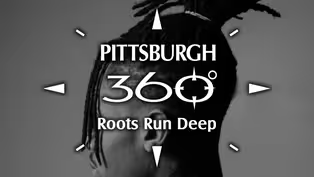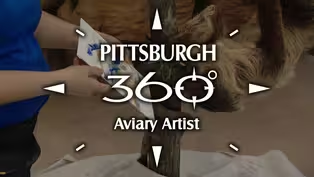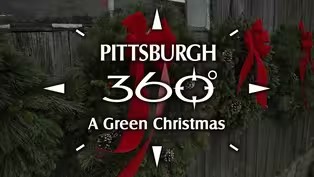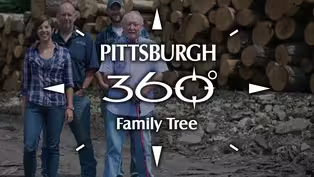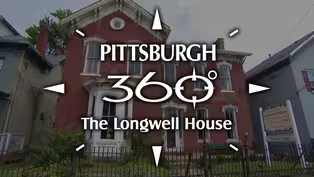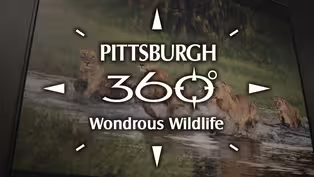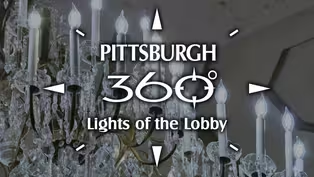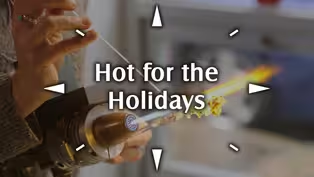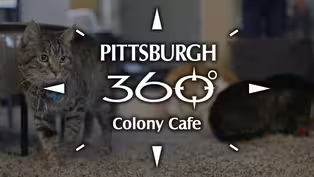
Home Spun
3/17/2021 | 3m 43sVideo has Closed Captions
This farm and fiber mill processes its own farm-grown alpaca fiber to create products.
Enjoy a scenic visit to Stramba Alpaca Farm and Fiber Mill in Wampum, Lawrence County. This family-owned mill processes its own farm-grown alpaca fiber, along with fiber from all over the country, to create a variety of products. The yarns and more are spun and sold on site, with a studio including workshops, weaving and felting services.
Problems playing video? | Closed Captioning Feedback
Problems playing video? | Closed Captioning Feedback
More Local Stories is a local public television program presented by WQED

Home Spun
3/17/2021 | 3m 43sVideo has Closed Captions
Enjoy a scenic visit to Stramba Alpaca Farm and Fiber Mill in Wampum, Lawrence County. This family-owned mill processes its own farm-grown alpaca fiber, along with fiber from all over the country, to create a variety of products. The yarns and more are spun and sold on site, with a studio including workshops, weaving and felting services.
Problems playing video? | Closed Captioning Feedback
How to Watch More Local Stories
More Local Stories is available to stream on pbs.org and the free PBS App, available on iPhone, Apple TV, Android TV, Android smartphones, Amazon Fire TV, Amazon Fire Tablet, Roku, Samsung Smart TV, and Vizio.
Providing Support for PBS.org
Learn Moreabout PBS online sponsorshipMore from This Collection
Video has Closed Captions
A unique exhibit is exploring how contemporary Black hairstyles are tied to tradition. (5m 45s)
Video has Closed Captions
Recently, the aviary's "Valentino," the drawing sloth, is getting a lot of attention. (5m 39s)
Video has Closed Captions
In Washington County, a family farm has been making wreaths for more than three decades. (4m 49s)
Video has Closed Captions
Four generations of the Hickman family have become a world-wide distributor of top-quality (6m 49s)
Video has Closed Captions
Efforts are underway in Monongahela to renovate a landmark home built in 1872. (8m 22s)
Video has Closed Captions
A request from Saint Emma Monastery became sculpture Cliff Dupil's biggest challenge. (7m 39s)
Video has Closed Captions
Tour this unique exhibition, "National Geographic: 50 Greatest Wildlife Photographs." (7m 49s)
Video has Closed Captions
See the ceremonial spectacle for three crystal chandeliers at this historic hotel. (6m 55s)
Video has Closed Captions
The late Mac Miller will be forever remembered for his music, and now in a work of art. (2m 4s)
Video has Closed Captions
Visit the Pittsburgh Glass Center - where the public is invited to learn and create. (4m 21s)
Building the Festival of Trees
Video has Closed Captions
Take a behind-the-scenes look at building the Festival of Trees at Phipps Conservatory. (4m 51s)
Video has Closed Captions
Visit a bistro, bar and cat cafe in where you can enjoy a food, drink and the company of c (4m 9s)
Providing Support for PBS.org
Learn Moreabout PBS online sponsorship(bright instrumental music) - Alpacas are curious like cats.
You'll make a move and they'll turn and scatter and run but then they'll turn around and try to sneak up on you.
(bright instrumental music) We were exploring options to do with our small acreage kind off a gentleman's farm.
And we stumbled across alpacas at an open house.
And we kinda got mesmerized by them .
They are camelids so they are of the same family as a camel.
They are very efficient with their food and their water.
They don't do damage to the ground, and they are cute.
(soft music) I ended up buying a fiber mill and starting the mill on our farm, we outgrew the space and decided to be part of the revitalization of Wampum, moved into a 1OO year old building and we've been here just a year.
Once you have alpacas, every year you have to shear their fleece off of them.
We take off their fiber so that there's no harm done to the animal.
It is a health issue in the real high heat of the summer they would heat stress if they weren't shorn.
They roll to fluff their fiber either to cool them off or in the winter they'll do it to keep them warm.
So we have a tumbler and you'll see all that dirt drop out of the fiber.
Then it goes to the wash bay, put it on a drier and rack to dry, and then it starts this journey through the mill.
(gentle music) Everything at the mill goes through our picker which just opens the fiber.
From there it goes to a fiber separator then for the bulk of what we do, it goes on from there to be spun into yarn.
And the other products are felt and that is where we get a little bit more creative where we can actually make some finished product.
(pleasant music) One of the true benefits of it is, it is considered hypoallergenic.
Very very few people are allergic to alpaca.
It has no linen line, it doesn't get the dirt stuck to it, it's easier to get clean faster, it's a renewable resource, it's very light weight, Yeah, very warm fabric.
(gentle music) As I have alpacas and I make finished products out of my goods I need to sell them I can't keep them all.
So that gave us the need for store front.
And then we started our website so that you don't have to come to Wampum we want you to come to Wampum but you can find us online as well.
They were great creatures created to give up their fleece for some of the yearly basis and then the beauty is that we can turn it into lovely products.
(gentle music)
Support for PBS provided by:
More Local Stories is a local public television program presented by WQED
